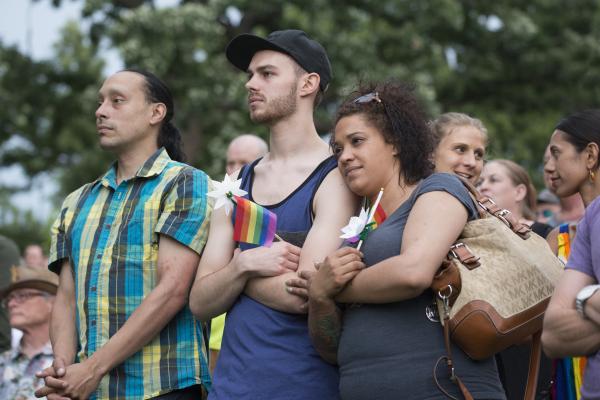Jun 14, 2016
My beautiful queer family, God is madly in love with us, even unto death and for eternity. No commas, parenthesis or conditional clauses. May we love each other in the same way.
Read the Full Article

Already a subscriber? Login
